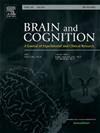The brain under pressure: Exploring neurophysiological responses to cognitive stress
IF 1.4
3区 心理学
Q3 NEUROSCIENCES
引用次数: 0
Abstract
Stress is an increasingly dominating part of our daily lives and higher performance requirements at work or to ourselves influence the physiological reaction of our body. Elevated stress levels can be reliably identified through electroencephalogram (EEG) and heart rate (HR) measurements. In this study, we examined how an arithmetic stress-inducing task impacted EEG and HR, establishing meaningful correlations between behavioral data and physiological recordings. Thirty-one healthy participants (15 females, 16 males, aged 20 to 37) willingly participated. Under time pressure, participants completed arithmetic calculations and filled out stress questionnaires before and after the task. Linear mixed effects (LME) allowed us to generate topographical association maps showing significant relations between EEG features (delta, theta, alpha, beta, and gamma power) and factors such as task difficulty, error rate, response time, stress scores, and HR. With task difficulty, we observed left centroparietal and parieto-occipital theta power decreases, and alpha power increases. Furthermore, frontal alpha, delta and theta activity increased with error rate and relative response time, while parieto-temporo-occipital alpha power decreased. Practice effects on EEG power included increases in temporal, parietal, and parieto-occipital theta and alpha activity. HR was positively associated with frontal delta, theta and alpha power whereas frontal gamma power decreases. Significant alpha laterality scores were observed for all factors except task difficulty and relative response time, showing overall increases in left parietal regions. Significant frontal alpha asymmetries emerged with increases in error rate, sex, run number, and HR and occipital alpha asymmetries were also found with run number and HR. Additionally we explored practice effects and noted sex-related differences in EEG features, HR, and questionnaire scores. Overall, our study enhances the understanding of EEG/ECG-based mental stress detection, crucial for early interventions, personalized treatment and objective stress assessment towards the development of a neuroadaptive system.
压力下的大脑:探索认知压力下的神经生理反应
压力在我们的日常生活中日益占据主导地位,工作中或对自己提出的更高要求会影响我们身体的生理反应。压力水平的升高可以通过脑电图(EEG)和心率(HR)测量可靠地识别出来。在本研究中,我们研究了算术压力诱导任务如何影响脑电图和心率,并在行为数据和生理记录之间建立了有意义的相关性。31 名健康参与者(15 名女性,16 名男性,年龄在 20 至 37 岁之间)自愿参加了这项研究。在时间压力下,参与者完成了算术计算,并在任务前后填写了压力问卷。线性混合效应(LME)使我们能够生成地形关联图,显示脑电图特征(δ、θ、α、β和γ功率)与任务难度、错误率、反应时间、压力评分和心率等因素之间的显著关系。随着任务难度的增加,我们观察到左顶叶和顶枕叶的θ功率下降,而α功率增加。此外,额叶α、δ和θ活动随着错误率和相对反应时间的增加而增加,而顶颞枕叶α功率则下降。练习对脑电图功率的影响包括颞叶、顶叶和顶枕叶θ和α活动的增加。心率与额叶δ、θ和α功率呈正相关,而额叶γ功率下降。除任务难度和相对反应时间外,所有因素都有显著的阿尔法侧向性得分,显示出左顶叶区域的整体增加。随着错误率、性别、运行次数和心率的增加,出现了显著的额叶α不对称,枕叶α不对称也随着运行次数和心率的增加而出现。此外,我们还探讨了练习效应,并注意到在脑电图特征、心率和问卷评分方面存在与性别相关的差异。总之,我们的研究加深了人们对基于脑电图/心电图的精神压力检测的理解,这对早期干预、个性化治疗和客观压力评估至关重要,有助于神经适应系统的开发。
本文章由计算机程序翻译,如有差异,请以英文原文为准。
求助全文
约1分钟内获得全文
求助全文
来源期刊

Brain and Cognition
医学-神经科学
CiteScore
4.60
自引率
0.00%
发文量
46
审稿时长
6 months
期刊介绍:
Brain and Cognition is a forum for the integration of the neurosciences and cognitive sciences. B&C publishes peer-reviewed research articles, theoretical papers, case histories that address important theoretical issues, and historical articles into the interaction between cognitive function and brain processes. The focus is on rigorous studies of an empirical or theoretical nature and which make an original contribution to our knowledge about the involvement of the nervous system in cognition. Coverage includes, but is not limited to memory, learning, emotion, perception, movement, music or praxis in relationship to brain structure or function. Published articles will typically address issues relating some aspect of cognitive function to its neurological substrates with clear theoretical import, formulating new hypotheses or refuting previously established hypotheses. Clinical papers are welcome if they raise issues of theoretical importance or concern and shed light on the interaction between brain function and cognitive function. We welcome review articles that clearly contribute a new perspective or integration, beyond summarizing the literature in the field; authors of review articles should make explicit where the contribution lies. We also welcome proposals for special issues on aspects of the relation between cognition and the structure and function of the nervous system. Such proposals can be made directly to the Editor-in-Chief from individuals interested in being guest editors for such collections.
 求助内容:
求助内容: 应助结果提醒方式:
应助结果提醒方式:


